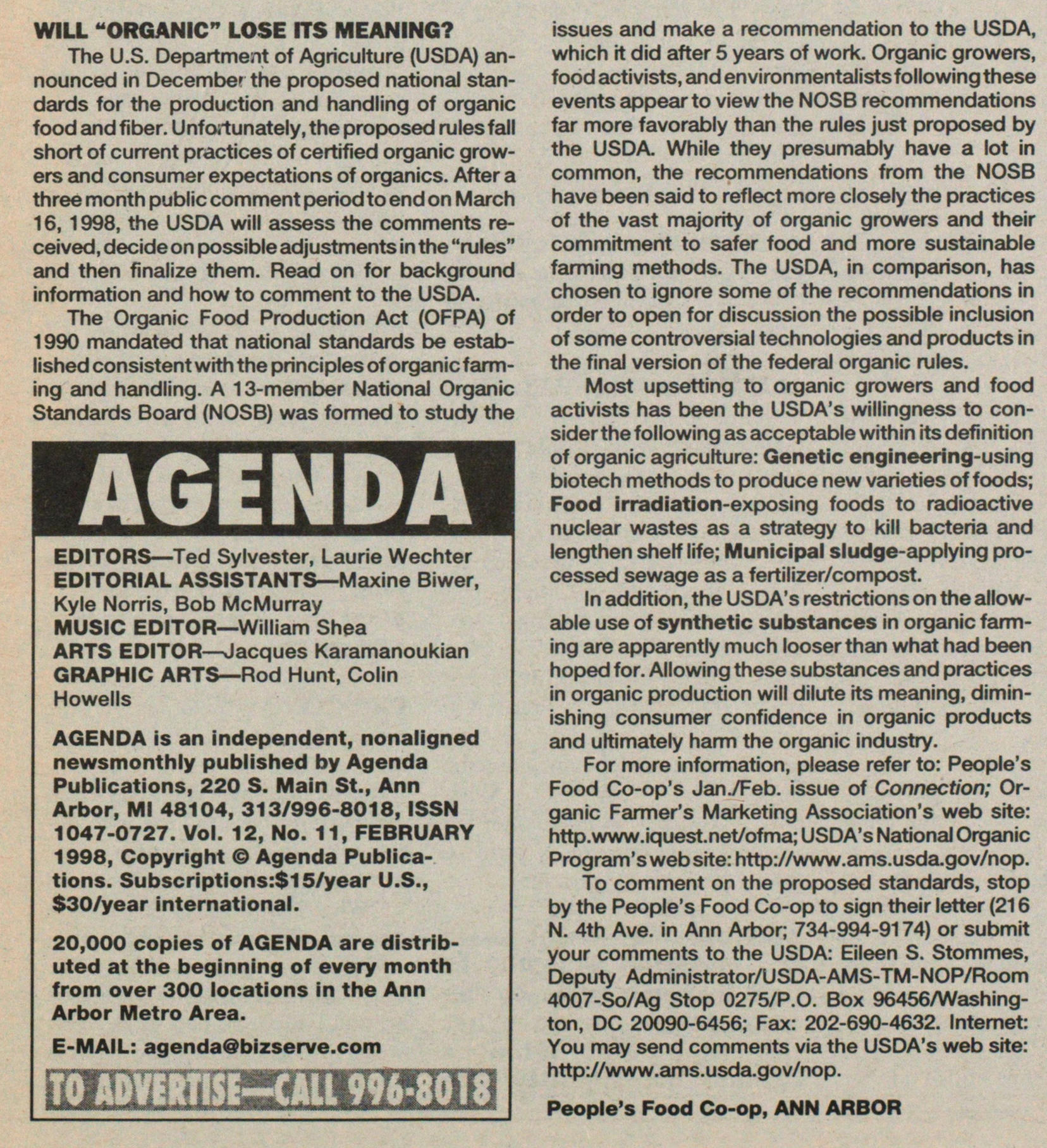Will "organic Lose Its Meaning?

The U.S. Department of Agriculture (USDA) announced in December the proposed national standards for the production and handling of organic food and fiber. Unfortunately, the proposed rules fall short of current practices of certified organic growers and consumer expectations of organics. After a three month public comment period to end on March 16, 1998, the USDA will assess the comments received, decide on possible adjustments in the "rules" and then finalize them. Read on for background information and how to comment to the USDA.
The Organic Food Production Act (OFPA) of 1990 mandated that national standards be established consistent with the principles of organic farming and handling. A 13-member National Organic Standards Board (NOSB) was formed to study the issues and make a recommendation to the USDA, which it did after 5 years of work. Organic growers, food activists, and environmentalists following these events appear to view the NOSB recommendations far more favorably than the rules just proposed by the USDA. While they presumably have a lot in common, the recommendations from the NOSB have been said to reflect more closely the practices of the vast majority of organic growers and their commitment to safer food and more sustainable farming methods. The USDA, in comparison, has chosen to ignore some of the recommendations in order to open for discussion the possible inclusion of some controversial technologies and products in the final version of the federal organic rules.
Most upsetting to organic growers and food activists has been the USDA's willingness to consider the following as acceptable within its definition of organic agriculture: Genetic engineering-using biotech methods to produce new varieties of foods; Food irradiation-exposing foods to radioactive nuclear wastes as a strategy to kill bacteria and lengthen shelf life; Municipal sludge-applying processed sewage as a fertilizer/compost.
In addition, the USDA's restrictions on the allowable use of synthetic substances in organic farming are apparently much looser than what had been hoped for. Allowing these substances and practices in organic production will dilute its meaning, diminishing consumer confidence in organic products and ultimately harm the organic industry.
For more information, please refer to: People's Food Co-op's Jan/Feb. issue of Connection; Organic Farmer's Marketing Association's web site: http.www.iquest.net/ofma; USDA's National Organic Program's web site: http://www.ams.usda.gov/nop.
To comment on the proposed standards, stop by the People's Food Co-op to sign their letter (216 N. 4th Ave. in Ann Arbor; 734-994-9174) or submit your comments to the USDA: Eileen S. Stommes, Deputy Administrator/USDA-AMS-TM-NOP/Room 4007-So/Ag Stop 0275/P.O. Box 96456/Washington, DC 20090-6456; Fax: 202-690-4632. Internet: You may send comments via the USDA's web site: http://www.ams.usda.gov/nop.
People's Food Co-op, ANN ARBOR